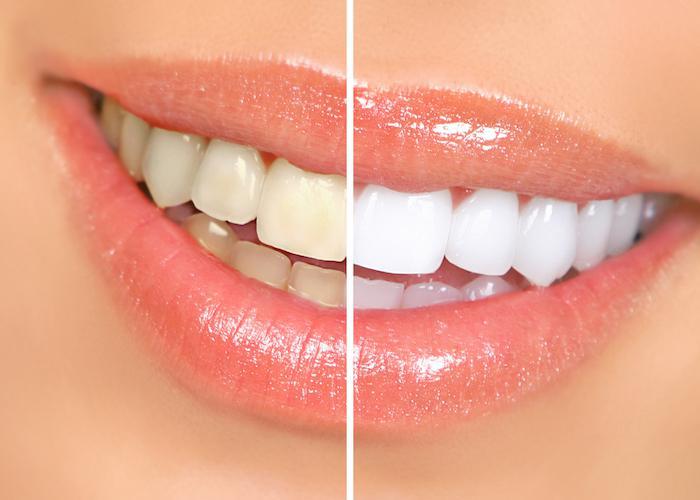 Why Tooth Discoloration Happens?
Why Tooth Discoloration Happens?
Coffee, tea, sodas, smoke, acidic juices, certain medications, and highly pigmented foods can take a dingy toll on pearly whites. Not that teeth were ever meant to be totally white. The natural color of teeth is actually light yellow to light yellow-red. But as you age, your teeth tend to darken even more.
There are many causes of discolored teeth—some of which could have possibly been prevented, and many of which are beyond your control. This comprehensive list can help you determine the cause of discolored teeth, and in many cases, help prevent further discoloring of your teeth:
While no one knows for sure how many of us suffer from stained teeth, it’s clear that how healthy and white our teeth are is something we care about. These days, we see a shiny smile as a sort of social status symbol, making whitening products and procedures pretty popular. Most of us (99%) consider our smile our most important social feature, according to the American Academy of Cosmetic Dentistry.
It’s also important to understand that dental restorations, including bonding, veneers, crowns, bridges, dentures or implants cannot be whitened because they are made of manmade materials, usually porcelain. Only natural enamel teeth can be whitened, and only then if the cause is something your dentist considers reversible. Depending on the cause of discoloration, your dentist may suggest one or more of the following options.
At-home whitening:
Professional whitening:
DIY home whitening:
The desire to try DIY home whitening is understandable. If it works, it’s natural and it costs less — then why not. Right? Well, the questions you should ask yourself first are, “Do these teeth whitening tricks you see in magazines and on blogs really work? According to the American Dental Association, the answer is no to one or both of these questions in most cases.
Don’t try:
Fruit is great to eat but not great for your teeth. Fruit contains citric acid, which is never good to use because it etches enamel away. If the magazine you’re reading says to use anything naturally acidic (such as lemons, oranges or apple cider vinegar), skip it and save it for eating or cooking. Prolonged exposure to citrus is like putting your teeth in an acid bath and will only wear down enamel.
Activated charcoal or a baking soda-hydrogen peroxide paste are unproven as an effective or safe way to whiten teeth, according to a study published in the Journal of the American Dental Association. Baking soda is an abrasive substance that can wear away the enamel that is vital to healthy white teeth. If you lose too much of your enamel, you’ll expose the second layer, the more porous yellowish dentin. This can make your teeth more yellow and leave them more prone to staining and cavities.
Oils and spices have popped up online and in magazines promising to whiten your teeth naturally. Unfortunately, according to the American Dental Association, there is no evidence that turmeric will turn your teeth a brighter shade, nor is there any proof that “pulling oil” (swishing coconut oil in your mouth) will make your pearly whites any pearlier. You’re better off saving both for cooking.